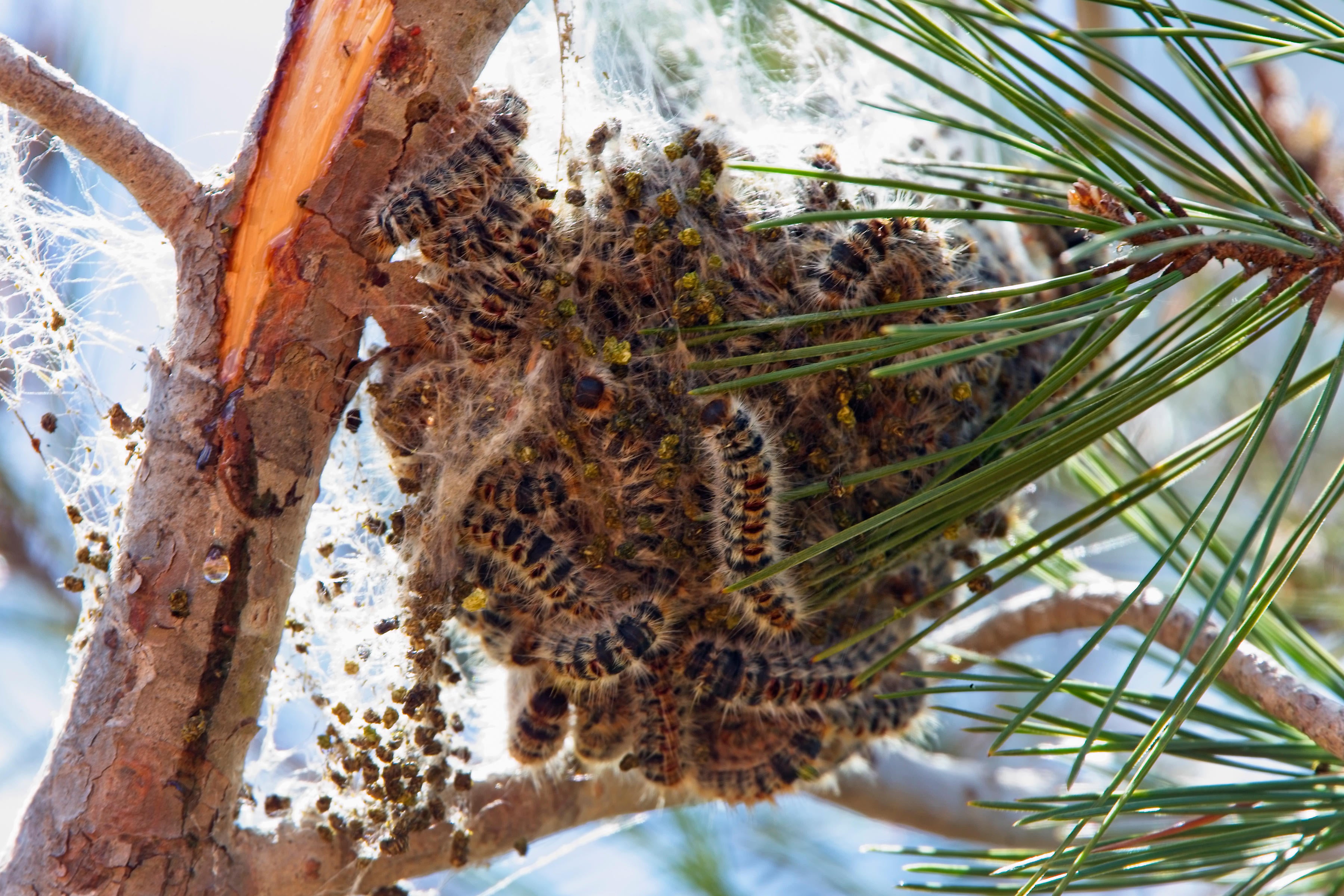Import controls reviewed after highly destructive pine tree pest found in UK
Pine processionary moth a ‘stark reminder’ of the risk of importing trees to Britain, Woodland Trust warns.

Your support helps us to tell the story
From reproductive rights to climate change to Big Tech, The Independent is on the ground when the story is developing. Whether it's investigating the financials of Elon Musk's pro-Trump PAC or producing our latest documentary, 'The A Word', which shines a light on the American women fighting for reproductive rights, we know how important it is to parse out the facts from the messaging.
At such a critical moment in US history, we need reporters on the ground. Your donation allows us to keep sending journalists to speak to both sides of the story.
The Independent is trusted by Americans across the entire political spectrum. And unlike many other quality news outlets, we choose not to lock Americans out of our reporting and analysis with paywalls. We believe quality journalism should be available to everyone, paid for by those who can afford it.
Your support makes all the difference.Officials are looking at further measures to stop a highly destructive pest getting a foothold in Britain after it was found on imported pine trees.
The Environment Department (Defra) said that pine processionary moth was found on a small number of pine trees in southern England imported from France in February, which have been destroyed.
The species Thaumetopoea pityocampa, commonly known as the pine processionary moth, can cause affected trees to lose their leaves, hitting their growth, and can even cause tree death – particularly in young plantations.
Larvae and caterpillars of the species can pose a risk to human health as they are covered in tiny, irritating hairs.
Pine processionary moth larvae and caterpillars can cause significant damage to pine and other conifer tree species, and can pose a risk to human and animal health
The moth affects pine and other conifer species in Europe and North Africa, but is not currently established in the UK – although it could potentially become established in some warmer areas of the country.
Defra said there was no evidence the pest had spread into the environment, but increased surveillance and trapping will be carried out over the summer as a precautionary measure.
All trees arrived in Britain with phytosanitary certificates, officials said, and import requirements mandate that host trees can only be imported from places of production officially inspected and certified as being free of pine processionary moth.
As the import requirements were not met in this case, Defra said the rules were being reviewed to identify further measures to protect against the introduction of the species to Britain.
But experts at the Woodland Trust warned it was a “stark reminder” of the risks of importing trees into the UK and called for urgent investment in domestic nurseries to reduce Britain’s reliance on imported stock.
UK chief plant health officer Nicola Spence said: “Pine processionary moth larvae and caterpillars can cause significant damage to pine and other conifer tree species, and can pose a risk to human and animal health.
“We are taking urgent action following confirmed findings of pine processionary moth in the south of England, imported from France.
“As part of the UK’s robust biosecurity programme, we are taking all necessary action to prevent spread of this potentially hazardous pest through the rapid implementation of control measures, including the destruction of the affected trees, and work to strengthen import requirements.”
Our native trees are under unprecedented threat, and so are the species that rely on them in order to survive
Alisha Anstee, policy lead on tree health and invasive species for the Woodland Trust, said: “The recent interception of pine processionary moth in England is a stark reminder of the risks associated with importing trees into the UK, and the consequential vulnerability of our existing trees to deadly pests and disease.”
She said that in the last 30 years, more than 20 serious tree pests and diseases had arrived in the UK, which would ultimately lead to the loss of tens of millions of trees, and the landscape was facing threats ranging from ash dieback to oak processionary moth.
“Our native trees are under unprecedented threat, and so are the species that rely on them in order to survive.
“This is at a time when the UK is trying to rapidly increase tree cover to tackle the nature and climate crises.
“This is hard enough, but by importing diseases that attack existing trees we’re making this challenge even greater and damaging important habitats in the process.”
She said current biosecurity policy was not working, and infrastructure at the border could only go so far to protecting UK trees from imported threats.
“There is an urgent need for the UK to invest in the domestic nursery sector to begin to reduce our reliance on imported stock, which is truly the most effective safeguard against inadvertently importing pest and diseases,” she urged.